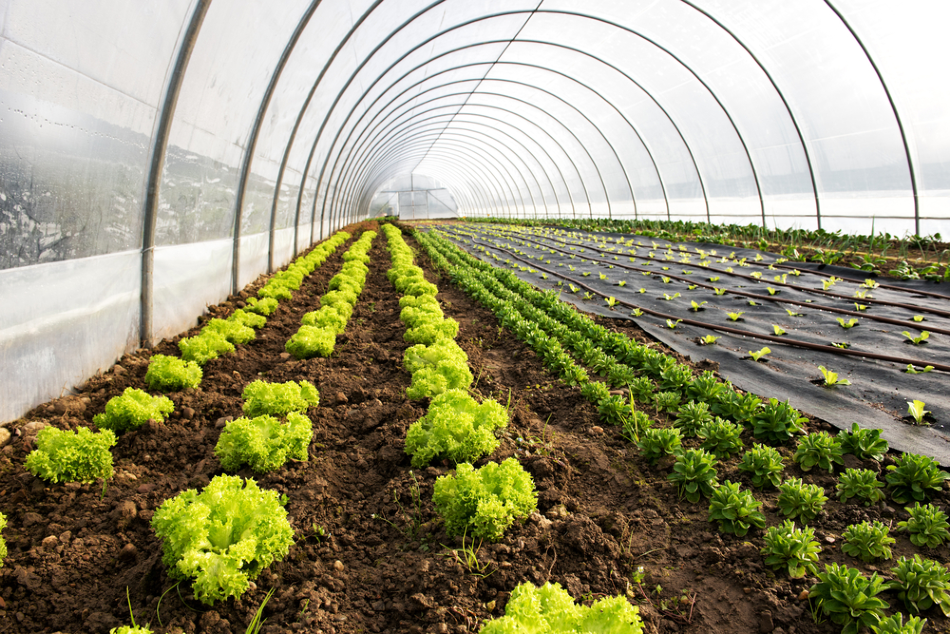
Image Credit: Photology1971/Shutterstock.com
Abiotic stress occurs due to high salinity, drought, extreme temperatures, mineral deficiencies, presence of heavy metals, and ultraviolet rays. It leads to a chain of molecular, physiological, morphological, and biochemical changes in a plant, adversely affecting plant growth, productivity, and global food security. Nanotechnology proves to be a promising technology that is used to mitigate environmental stress on crop plants.
Plant Responses to Abiotic Stress
Plants being a sessile organism, face abiotic stresses throughout their life cycle that affect their growth and productivity. In response to the environmental stresses, plants develop defense systems at various levels by modifying their biochemical, morphological, molecular (alteration of gene expressions), and physiological pathways. However, these are not enough to nullify all the negative impacts of environmental stresses. For example, salinity decreases the osmotic potential of the soil, which causes nutritional imbalance. Enhancement of ionic toxicity adversely affects various vital biochemical and physiological processes such as photosynthesis, protein synthesis, and lipid metabolisms.
Nanomaterials Fast-track the Plant Adaptation to Abiotic Stress
Food security is now in a challenging situation due to the growing world population and the simultaneous decrease in crop production with progressive environmental changes. Therefore, the primary concern of scientists is to find ways to accelerate the process of plants’ adaptation to environmental changes.
Some of the ways in which plants adapt to various abiotic stress are:
- Activation of plant enzymatic system
- Hormonal regulation
- Stress gene expression
- Regulation of toxic metal uptake
- Avoiding water deficit stress or flash flood through shortening of plant life cycle
Improvements in nanomaterial engineering show how nano fertilizers can enhance crop productivity in adverse environmental conditions.
In the global scenario, following conventional agricultural methods, salinity stress alone decreases crop production by about 23%. Prior research on the application of nano-SiO2 on tomato and squash plants has revealed that the use of the nano fertilizer in saline conditions has several positive effects.
These effects may include an increased rate of seed germination, higher plant weight (dry and fresh), total chlorophyll content, and accumulation of proline. In similar stress conditions, foliar spray of nanoparticles, nano FeSO4, revealed increased leaf area, net carbon dioxide assimilation rate, total chlorophyll content, dry weight and improved photochemical efficiency of photosystem II (Fv/Fm).
Drought is the most frequently occurring abiotic stress, which significantly decreases crop production in arid regions. The application of silica nanoparticles enhances the plant tolerance toward drought stress. Treatment of Crataegus sp. with different concentrations of silica nanoparticles increased drought tolerance by altering its physiological and biochemical processes.
The plant treated with silica nanoparticles showed a positive effect on relative water content, photosynthesis parameters, membrane electrolyte leakage and total chlorophyll, carbohydrate, proline, and carotenoid contents.

 How do Nanoparticles Affect Plant Function?
How do Nanoparticles Affect Plant Function?
Researchers believe that the cultivation of crop plants with shorter life cycles can be highly effective for drought and flash flood-prone regions where the early maturity of crops is an essential factor for sustainable crop production. Studies have indicated that the life cycle of nano fertilizer-applied wheat crop was significantly shorter when compared with the conventional fertilizer-applied wheat crop, i.e., 130 days compared with 170 days (date of sowing to yield production).
Nanomaterials can effectively detoxify harmful pollutants such as heavy metals. The foliar application of silica nanoparticles significantly increases the tolerance of cadmium, lead, zinc, and copper stress in rice plants by regulating its accumulation.
How Do Nanomaterials Improve Plant Growth in Abiotic Stress?
Even though a large number of studies have been conducted on the application of nanomaterials on plant growth in stress conditions, the main mechanisms are still mostly unknown. However, researchers think that the effects of nanomaterials on crop growth under unfavorable environmental conditions are partly due to the increased enzymatic activities.
Nanoparticles are involved in regulating the activities of antioxidant enzymes such as superoxide dismutase (SOD), catalase (CAT), and peroxidase (POD).
The application of TiO2 nanoparticles on onion seedlings has shown an increase in SOD activity. The study revealed the importance of the number of nanoparticles used, i.e., an increase in seed germination occurs at a low concentration of TiO2 nanoparticles in onion, whereas, at higher levels, seed germination gets inhibited.
Enzyme activity is higher at lower concentrations of TiO2. Nanomaterials (nano-SiO2 and nano-ZnO) escalate the accumulation of free proline and amino acids. They can also increase the uptake of nutrients and water. The application of these nanoparticles further increases the activity of antioxidant enzymes such as SOD, CAT, POD, and nitrate reductase, which eventually develop plant tolerance to abiotic stress.
Nanomaterials could also regulate stress gene expression. For instance, microarray analysis revealed that silver nanoparticles can control several gene expressions in Arabidopsis. In this regard, a significant part of the gene expression is associated with the response to metals, oxidative stress (cytochrome P450-dependent oxidase, SOD, and POD), pathogens, and hormonal stimuli (ethylene signaling). Therefore, these nanomaterials-induced genetic responses are directly associated with plant protection against stresses.
Plants’ response to nano fertilizers varies with plant species, growth stages, and the nature of nanomaterials used. Therefore, it is essential to understand the nanoparticle-plant interaction to obtain the desired result i.e., to mitigate the abiotic stress on crop plants.
References and Further Reading
Das, A. and Das, B. (2019). Nanotechnology a Potential Tool to Mitigate Abiotic Stress in Crop Plants, Abiotic and Biotic Stress in Plants, Alexandre Bosco de Oliveira, IntechOpen, Available at: https://www.intechopen.com/books/abiotic-and-biotic-stress-in-plants/nanotechnology-a-potential-tool-to-mitigate-abiotic-stress-in-crop-plants.
Shang, Y. et al. (2019). Applications of Nanotechnology in Plant Growth and Crop Protection: A Review. Molecules. 24, 2558.
Saxena, R., Tomar, R. S. and Kumar, M. (2016). Exploring Nanobiotechnology to Mitigate Abiotic Stress in Crop Plants. Journal of Pharmaceutical Sciences and Research. 8. 974-980.
Disclaimer: The views expressed here are those of the author expressed in their private capacity and do not necessarily represent the views of AZoM.com Limited T/A AZoNetwork the owner and operator of this website. This disclaimer forms part of the Terms and conditions of use of this website.